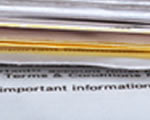 Go to main content
Go to main content
Archive Website of the UK government
Please note that this website has a UK government accesskeys system.
Main menu
Page menu
Money, tax and benefits

Debt repayment options - a guide

If you're struggling with debts, they may seem impossible to manage. However, there are ways to get out of debt, no matter how bad the situation seems. There’s also plenty of free and independent advice available to help you manage your debt problem.
Facing up to your debt problem
Almost everyone owes money - bills are a fact of life. But sometimes you may find you are swamped with debts and can't see a way of paying them all. The worst thing you can do is to ignore the problem - it won't just go away.
Getting debt advice
You can get free and independent advice to help you deal with your debt problem from organisations like Citizens Advice and the National Debtline.
Making the most of your money
If you're in debt, work out a realistic personal budget so you know where your money's going - and how much you can afford to pay your creditors (people you owe money to).
If you don't have enough money to pay off your debts, look at ways of cutting your costs and increasing your income.
Cutting your costs
You can look at your expenses to see where you can make savings. You could also try shopping around to reduce bills, or think about selling non-essential items that you own (for example, a second car).
Increasing your income
You may be in debt because you're not receiving all the money you're entitled to. For example:
- make sure you're not paying too much tax
- check if you're entitled to tax credits
- make sure you're getting the benefits you're entitled to
- make sure that any family and friends living with you are paying enough towards household expenses
- think about renting out a spare room to a lodger
- check if your mortgage payments are covered by insurance
Ways of repaying your debts
There are many ways to repay your debts. You can get free and independent debt advice online and face to face to help you find the best way to deal with your debt problem.
This includes advice on what restrictions and responsibilities you have to agree to and how different repayment options affect things like:
- your credit rating
- your home – for example, if it is still at risk of being sold to pay your debts
- what action your creditors can take to recover their money - for example, taking you to court to make you bankrupt
Informal arrangements
An informal arrangement is where you agree with your creditors to make regular payments towards your debts over a period of time.
Individual voluntary arrangements (IVAs)
Individual voluntary arrangements are formal agreements with your creditors to pay all or part of your debts over a period of time. They have to be set up by an authorised debt specialist and there are certain costs you need to pay.
Debt management companies (DMCs)
DMCs offer help if you're in debt (they usually only deal with non-priority debts - see the link 'Find out more about non-priority debts' below). They negotiate with your creditors on your behalf to reduce the payments you are making overall. You then make one payment to the DMC, which distributes it to your creditors.
Most DMCs charge a fee, so you may have less money from your available income to settle your debts. However, organisations like the National Debtline and Consumer Credit Counselling Service (CCCS) offer free debt management plans.
Administration Orders
An Administration Order can help you deal with your debts if they are £5,000 or less and you can can afford to make regular payments to your creditors. You have to apply for an Administration Order through your local county court and there are certain costs and conditions you need to meet.
Bankruptcy
When you are made bankrupt, a person called a ‘trustee’ is appointed to take control of your assets (possessions, home, spare income etc) and sell or use them to help pay your debts. Your financial affairs will be investigated and you have to agree to certain restrictions. For example, you can’t borrow more than £500 without telling the lender you are bankrupt.
Debt relief orders
Debt relief orders (DROs).can help you deal with certain types of debt if you owe less than £15,000, have little spare income and don’t own your home. You have to apply for a DRO through an authorised debt specialist.
Fast-track voluntary arrangements
If you have been made bankrupt, a fast-track voluntary arrangement (FTVA) may be a way to annul (cancel) the bankruptcy and deal with your debts.
You have to apply for an FTVA through an officer of the bankruptcy court called the ‘Official Receiver’ and your creditors have to agree to it. There are costs involved and conditions you need to meet. For example, you must have assets (property, shares etc) that are easy to sell.
Consolidating your debts
Consolidating debt is when you take out a single new loan to pay off several existing debts. You should get independent advice before taking out a loan and make sure it's the right way to deal with your debt problem.
More useful links
Useful contacts
In this section...
- Administration Orders - ways out of debt
- Consolidating debts
- Debt management plans - ways out of debt
- Individual voluntary arrangements (IVAs) - ways out of debt
- Informal arrangements - ways out of debt
- Debt relief orders - ways out of bankruptcy
- Fast-track voluntary arrangements - ways out of bankruptcy
 Facebook
Facebook Twitter
Twitter StumbleUpon
StumbleUpon Delicious
Delicious Reddit
Reddit
